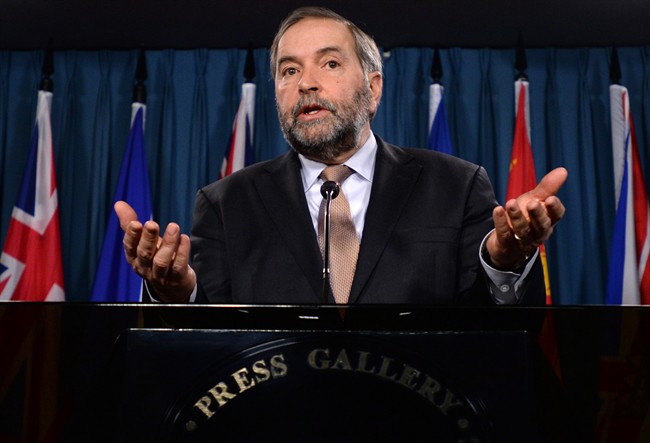OTTAWA —Support for the Conservatives’ contentious anti-terrorism bill may poll high among Canadians, but do the backers know what they’re standing behind?

Perhaps not.
An Angus Reid poll released Thursday suggested C-51, which Prime Minister Stephen Harper introduced Jan. 30, is popular — but more than half the respondents, 56 per cent, had neither consumed a news story nor had a discussion about the bill.
A vast majority of Canadians surveyed online —82 per cent —indicated support for the bill currently before the House of Commons.
While one in four respondents said they “strongly” support C-51, more than one-third said the bill as is doesn’t go far enough. While the support appears overwhelming, one question in the poll revealed respondents may not know much about the proposed legislation.
READ MORE: Are you already violating the feds’ new anti-terror bill?
“The federal government introduced new anti-terror legislation, Bill C-51, it would expand the powers of police agencies and CSIS. How familiar are you with the proposed legislation?” the poll asked.
Only 18 per cent said they had either “read or seen stories” about the bill and “discussed it with friends and family.”
At the other end of the spectrum, 20 per cent of respondents said they had neither seen nor read anything about the bill.
- Life in the forest: How Stanley Park’s longest resident survived a changing landscape
- ‘Love at first sight’: Snow leopard at Toronto Zoo pregnant for 1st time
- Buzz kill? Gen Z less interested in coffee than older Canadians, survey shows
- Carbon rebate labelling in bank deposits fuelling confusion, minister says
In the middle, one-quarter said they’d seen “a story or two” and “had an odd conversation” about the bill, while 36 per cent said they’ve scanned headlines on the subject.
READ MORE: How does Canada’s intelligence oversight compare to other countries?
The New Democrats are the federal party the most vocally opposed to the bill; on Wednesday, leader Tom Mulcair said he and his caucus colleagues would not vote in favour.
Their argument is the bill dangerously overreaches and is too vague — one bit missing from the bill is a clear definition of what constitutes terrorism, or any definition of “promoting” or “advocating.”
Other critics, including British Columbia-based OpenMedia.ca has warned some measures in the bill could encourage “reckless” sharing of private information.
The British Columbia Civil Liberties Association, meanwhile, said the bill proposes an “unprecedented expansion of powers” that could harm Canadians while doing nothing for public safety.
READ MORE: 5 changes to CSIS in the new anti-terror bill
C-51 is a sweeping piece of legislation covering everything from what people in Canada are permitted to write and say, to who can board a plane, whether tax information is shared, and how a suspect can be detained without charge.
Despite the criticisms and concerns included in many news stories over the past few weeks, a staggering majority of the Angus Reid respondents supported some of the measures in the bill: making it illegal to promote “terrorism” (91 per cent), blocking internet sites promoting terrorism (89 per cent), making it easier for law enforcement to add a name to a no-fly list (87 per cent), giving government departments the authority to share private information such as passport applications with law enforcement agencies (81 per cent).
Highlights of Bill C-51:
- Government institutions such as the Canada Revenue Agency can share your personal information with security agencies if they think it would be “relevant” to security issues.
- “Promoting” or “advocating” terrorism in general is punishable with up to five years in prison, even though actions could have merely been “reckless.”
- Security agencies can issue takedown orders for online content deemed “terrorist propaganda.”
- If police believe an individual could commit or be involved in terrorism they can detain that person – with a judge’s approval – up to seven days without charge, up from the previous three.
- Canada’s spy agency, CSIS, can act to “disrupt” terrorist activity, not just provide information on it. But this, too, requires a judge’s approval.
- It’ll be easier to keep someone off a plane if they’re on a no-fly list or the minister thinks they should be.
- It’ll be tougher to get into the country, and get citizenship, if an individual is believed to have terrorist ties.



Comments